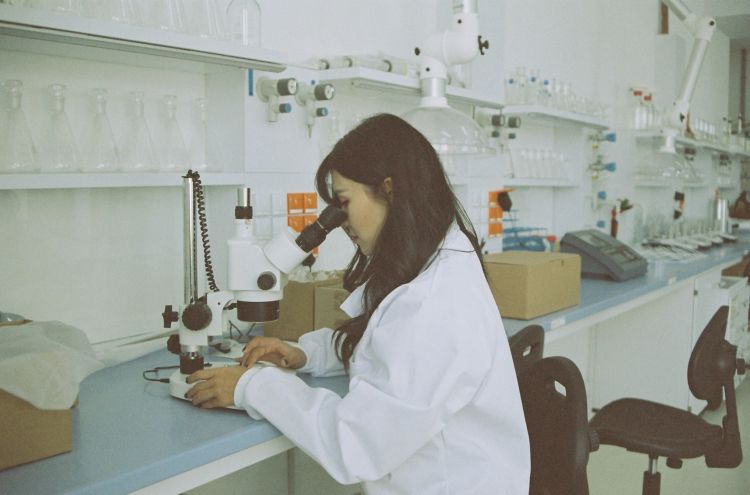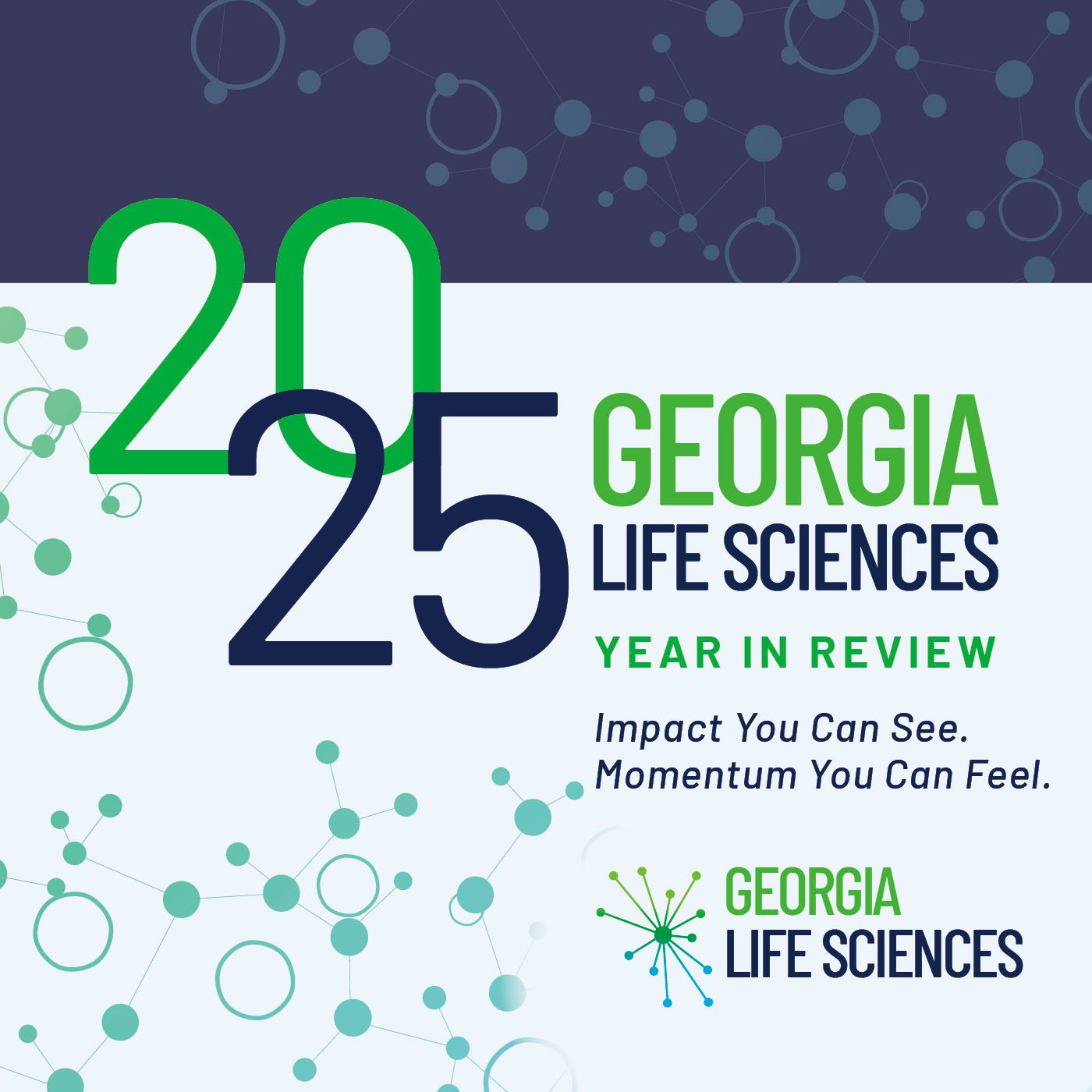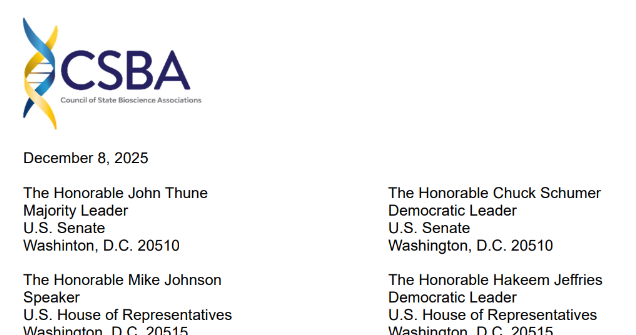News

January 20, 2026. Paulding County has been designated a BioReady Silver Community by Georgia Life Sciences, the state’s leading life sciences membership organization. The BioReady designation recognizes communities that demonstrate strong zoning practices, infrastructure capacity, and readiness to support biotechnology and life sciences development. “We are proud to recognize Paulding County as our newest BioReady Silver community,” said Maria Thacker-Goethe, President and CEO of Georgia Life Sciences. “Paulding County’s proactive planning, growing workforce, and access to regional healthcare and transportation infrastructure position it well to support life sciences manufacturing and commercialization. Through the BioReady program, we champion communities that are intentionally preparing to compete for industry investment and job growth.” Paulding County’s designation reflects its commitment to thoughtful land-use planning, scalable infrastructure, and business-friendly development policies that support life sciences and advanced manufacturing uses. Located in the northwest Atlanta metro region, the county offers access to a strong labor pool, major transportation corridors, and regional healthcare systems, making it an attractive option for biotechnology, medical device, diagnostics, and related life sciences companies seeking room to grow. “Georgia BioReady designation validates Paulding County’s readiness to support bioscience investment and strengthens our position as a growing hub for advanced industries,” said Alex Almodovar, President & CEO, Paulding County Economic Development Inc. & Industrial Building Authority The BioReady rating system evaluates communities across three tiers—Bronze, Silver, and Gold—based on their readiness to attract and support life sciences facilities. Through these ratings, Georgia Life Sciences helps municipalities better showcase biotech-appropriate sites, strengthen infrastructure planning, and clearly identify life sciences-friendly locations. This approach enables communities like Paulding County to compete more effectively for private investment and high-quality job creation. Georgia Life Sciences advances innovation, strengthens the workforce pipeline, and grows Georgia’s life sciences economy through the BioReady Community program, modeled after MassBio’s nationally recognized rating system, which assesses a community’s readiness to host life sciences facilities based on zoning practices and infrastructure capacity. About Georgia Life Sciences Georgia Life Sciences, founded in 1989, is a non-profit, membership-based organization that promotes the interests and growth of the life sciences industry. It is the state’s largest and most influential life sciences advocacy and business leadership organization working to improve access to innovative discoveries that have lifesaving impact. The association connects business, academia, government, and other allied entities involved in the application of life sciences products to fuel growth and collaboration through policy development, community programs, national industry initiatives, and a portfolio of educational and networking events. Learn more at galifesciences.org.

By: Patrick Plues | RealClearHealth January 8, 2026 For decades, America has led the global biotech industry – thanks, in part, to state-level policies that encourage research and manufacturing investments. But other countries, including China, are sparing no expense in the bid to overtake us. Beijing has officially made biotechnology a national strategic priority and is pouring billions into state-backed research and manufacturing efforts. All states should consider impactful biotech policies that grow and strengthen our domestic biotechnology industry. If states fail to utilize and replicate what are considered to be the best and most successful policies in biotech-focused economic development, the United States will soon lose its long-term leadership in developing medicines and medical technologies, which underpin our health, our economy, and our national security. Thankfully, many governors and state legislatures around the country are already answering this call -- as our new study, The U.S. Bioscience Industry: A Powerful Engine for State Economies, demonstrates. Keep Reading at https://www.realclearhealth.com/2026/01/08/americas_biotech_leadership_depends_on_the_states_1157584.html

Dear Georgia Life Sciences Community, As we reflect on the past year, I want to extend my sincere thanks to our Georgia Life Sciences members for making it such an impactful one. Your engagement and leadership continue to move our industry forward and advance our shared strategic priorities— driving strong policy, expanding the talent pipeline, and creating intentional spaces for collaboration across Georgia’s life sciences ecosystem. Our Year in Review captures the progress we’ve made together across these priorities and highlights the collective impact our members are having statewide—from strengthening the workforce and supporting manufacturing growth to elevating Georgia’s position as a national life sciences leader. This progress is only possible because of the collaboration, commitment, and insight of our member community.

The biopharmaceutical industry is growing America’s manufacturing and R&D capabilities to develop the next generation of treatments. A recent study from PILMA quantified the impact of the industry’s investment in American infrastructure on the economy and union workforce across 18 states from 2019-2024. The study found that across the 18 states included, the biopharmaceutical industry: Supported the American economy by investing $86.5B in R&D and manufacturing infrastructure and developing 1000+ construction projects at over 700 distinct facilities. Strengthened the American workforce by generating $2.6B in skilled union wages and providing $19M in support for union apprenticeships. The impact of the biopharmaceutical industry’s investment in American manufacturing and union jobs extends beyond direct benefits, spurring additional economic activity in the communities where workers live. This is known as the multiplier effect . On average, every $1 of new investment in a U.S. biopharmaceutical manufacturing facilities generates an additional $1.59 in further economic activity (2.59x times the initial investment value). The industry’s $86.5B investment in R&D and manufacturing infrastructure has a total economic impact of $224B. Check out this resource to learn more about how biopharmaceutical investment in American infrastructure supports America’s workers and communities. For more on how biopharmaceutical companies are investing in America’s future, visit innovation.org/america-investment .

Georgia Life Sciences has joined 43 state and regional life sciences organizations in signing a national Council of State Bioscience Associations (CSBA) letter calling on Congress to take immediate action on three bipartisan policy priorities that are essential to sustaining U.S. leadership in biomedical innovation and supporting patients nationwide. With Congress back in session and several critical programs at risk of expiring, the letter urges congressional leaders to advance the following provisions without delay: 1. Reauthorize the Rare Pediatric Disease Priority Review Voucher (PPRV) Program The PPRV program has been instrumental in incentivizing the development of therapies for children with rare and life-threatening conditions. Its lapse threatens to slow or halt research that families across the country are counting on. 2. Extend the SBIR/STTR Programs The Small Business Innovation Research (SBIR) and Small Business Technology Transfer (STTR) programs provide crucial early-stage capital for emerging biotech and medtech companies—many of them in Georgia. Without reauthorization, hundreds of innovative small businesses face uncertainty, jeopardizing new therapies, diagnostics, and technologies in the pipeline, 3. Advance PBM Transparency Reforms Greater transparency and accountability within pharmacy benefit manager (PBM) practices are needed to ensure that savings reach patients and employers. Reforming PBM operations is essential to strengthening access and affordability across the healthcare system. A Unified Message from the Life Sciences Community The sign-on letter reflects broad, bipartisan alignment across the national life sciences ecosystem: researchers, entrepreneurs, investors, patient advocates, and state associations all share a common message— these programs underpin America’s global competitiveness and are vital to patients who rely on continued scientific progress. Georgia Life Sciences has shared the letter with members of Georgia’s congressional delegation and will continue engaging with policymakers to emphasize the importance of swift action.

Georgia Life Sciences is proud to stand with patient advocates, providers, and employers across the state in urging Congress to take meaningful action on pharmacy benefit manager (PBM) reform. We recently signed on to a joint letter to Georgia’s Congressional Delegation stressing the urgent need for transparency, fair practices, and policies that ensure savings flow directly to patients.

Georgia Life Sciences’ CEO, Maria Thacker Goethe shares her perspective on the value of Georgia’s research universities in this month’s issue of Georgia Trend. “Georgia research institutions have felt a very significant impact from the federal rollbacks, specifically in NIH and NSF funding. Thacker Goethe’s message about the impact of research cuts is simple: Disruption shatters the foundational trust researchers have in grant continuity….” To read the full article, click here .




